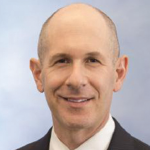Plucking the Thorn
Transitioning to a new practice environment two years ago helped to finally eradicate my consistent thorn. The current culture is team oriented with fewer on-call demands. Days no longer feel overwhelming. I look forward to teaching, departmental functions, or time to write and reflect. (I also couldn’t help but notice the high incidence of my new colleagues’ children following in their physician parent footsteps.)
Explore This Issue
November 2020On the home front, dinner options have remained stable, but the flavor is now one of fulfillment. The proof is in our nightly rose, bud, thorn: My responses have changed and are no longer predictable. My thorn is rarely work, and sometimes there’s no thorn at all. My rose is even sometimes work related—positive patient interactions in the office or successful cases in the operating room. My bud no longer focuses on being off call.
Even though I envision occupational following by children as a true testament to how much you enjoy your career, my goal isn’t necessarily for my own children to follow in my physician footsteps. But we can’t expect the children in our household to follow in our professional footsteps (or regret if they don’t) when the mealtime career capital we transfer is negative.
A persistent thorn grows internally and externally, adversely affecting personal well-being and the emotions of those around us—including the potential occupational trajectories of our children. When a thorn can be extracted at its roots, a rose can grow and flourish. The positive transformation will be felt by family, friends, and patients alike. If the effect is dramatic enough, it might even inspire children to follow in a parent’s career path.
My ultimate bud is my kids remembering that I was ultimately happy and fulfilled as a physician. Regardless of their career choice, I now hope to pass down the legacy of a career enjoyed. Now that would be a rose worth sharing over dinner.
 Dr. Greenberg is a clinical assistant professor with the department of otolaryngology–head and neck surgery at the University of Michigan in Ann Arbor.
Dr. Greenberg is a clinical assistant professor with the department of otolaryngology–head and neck surgery at the University of Michigan in Ann Arbor.